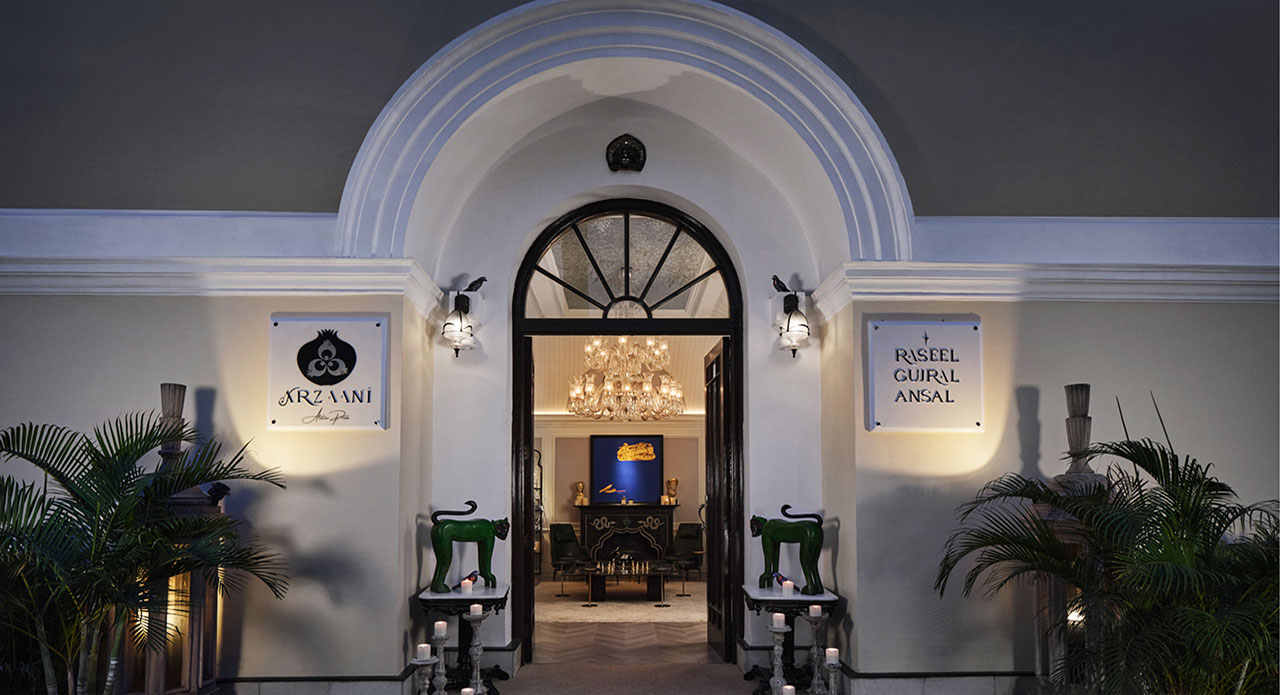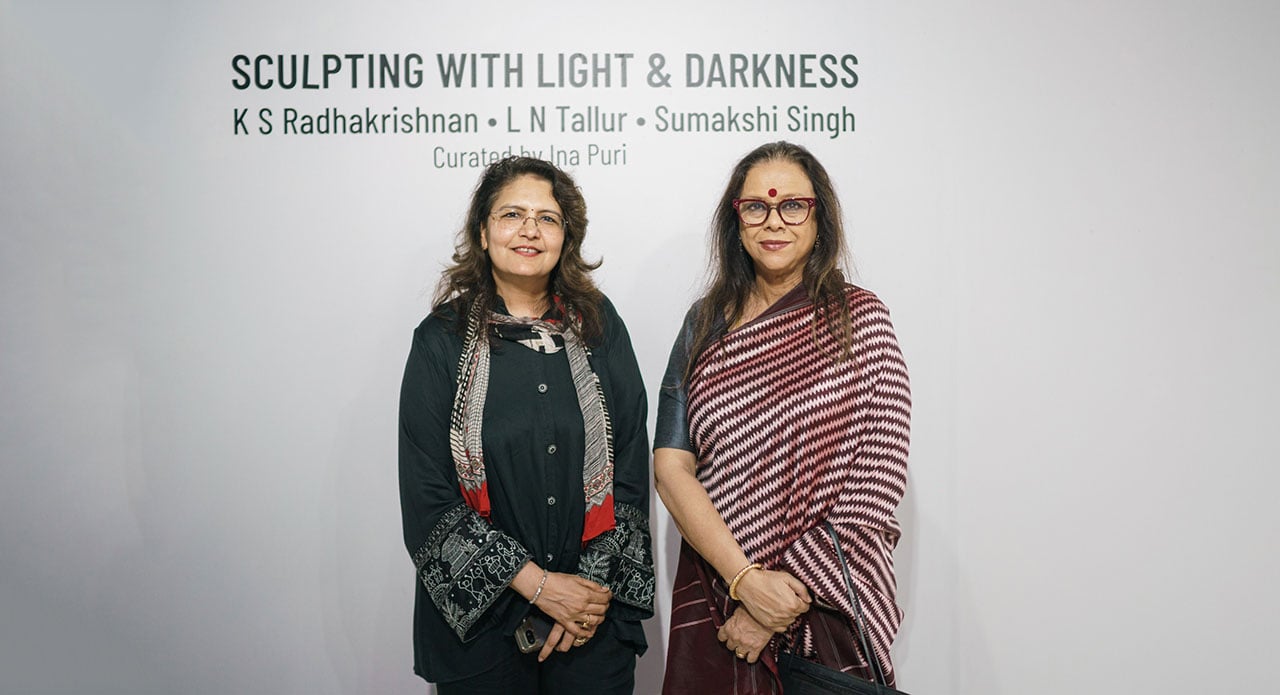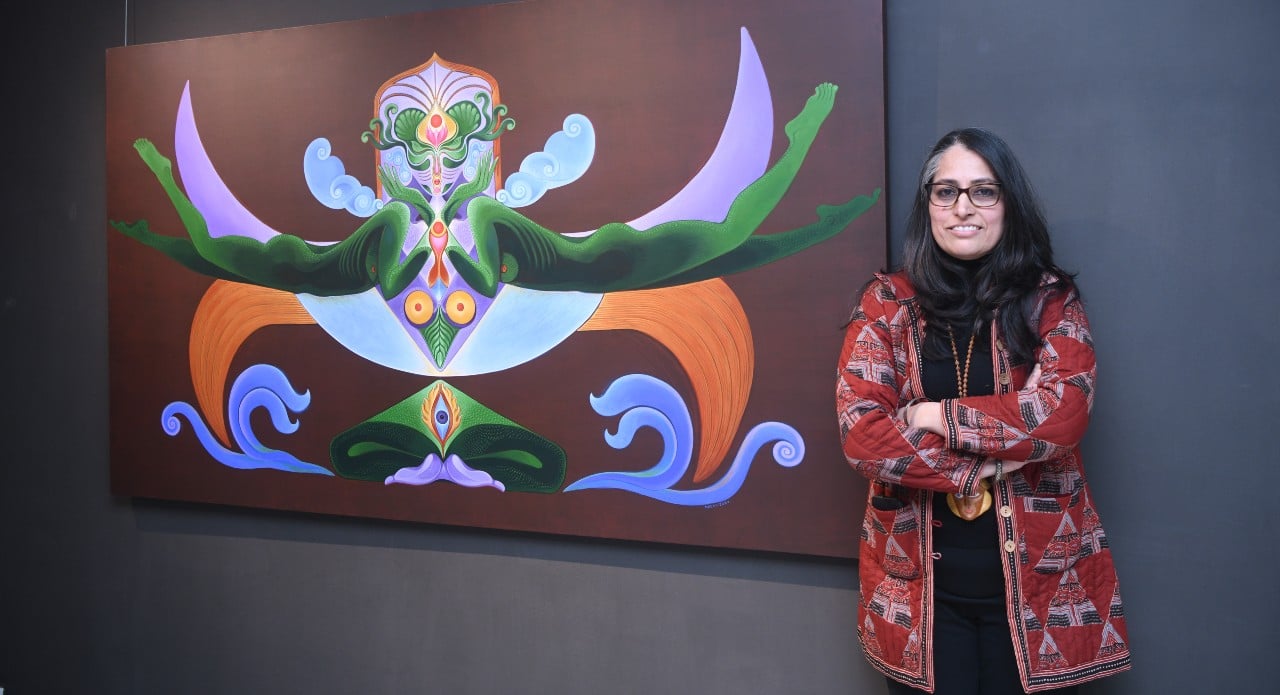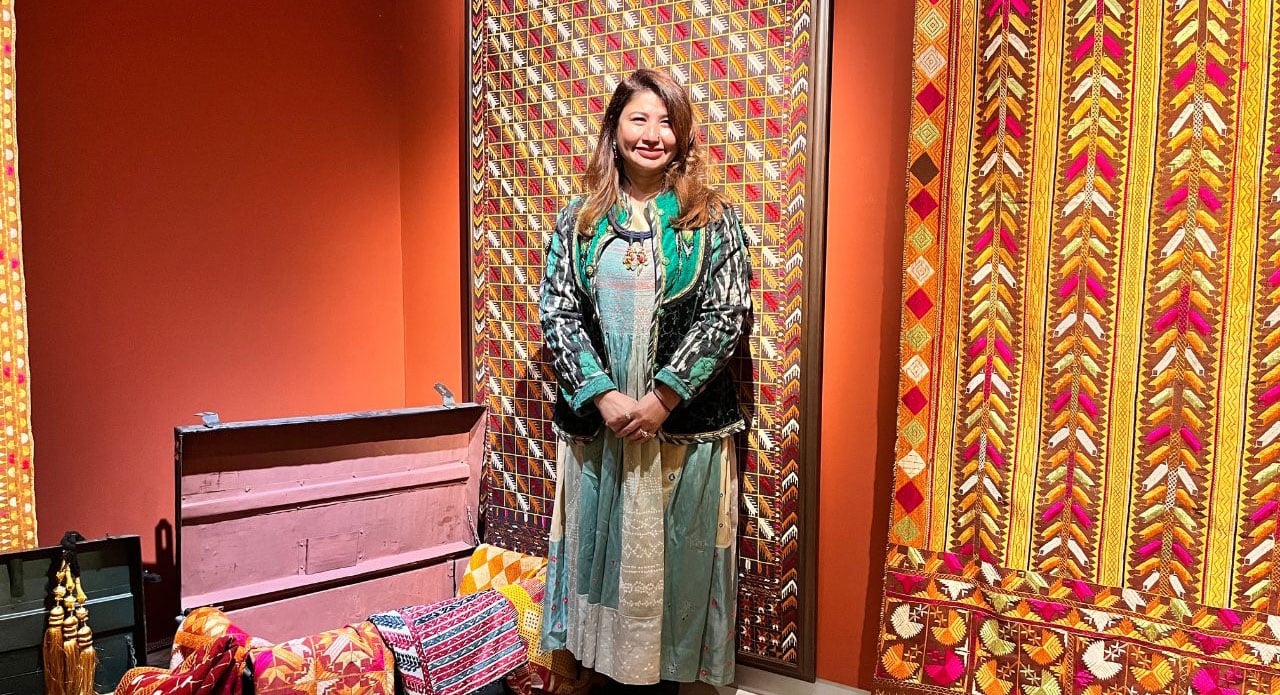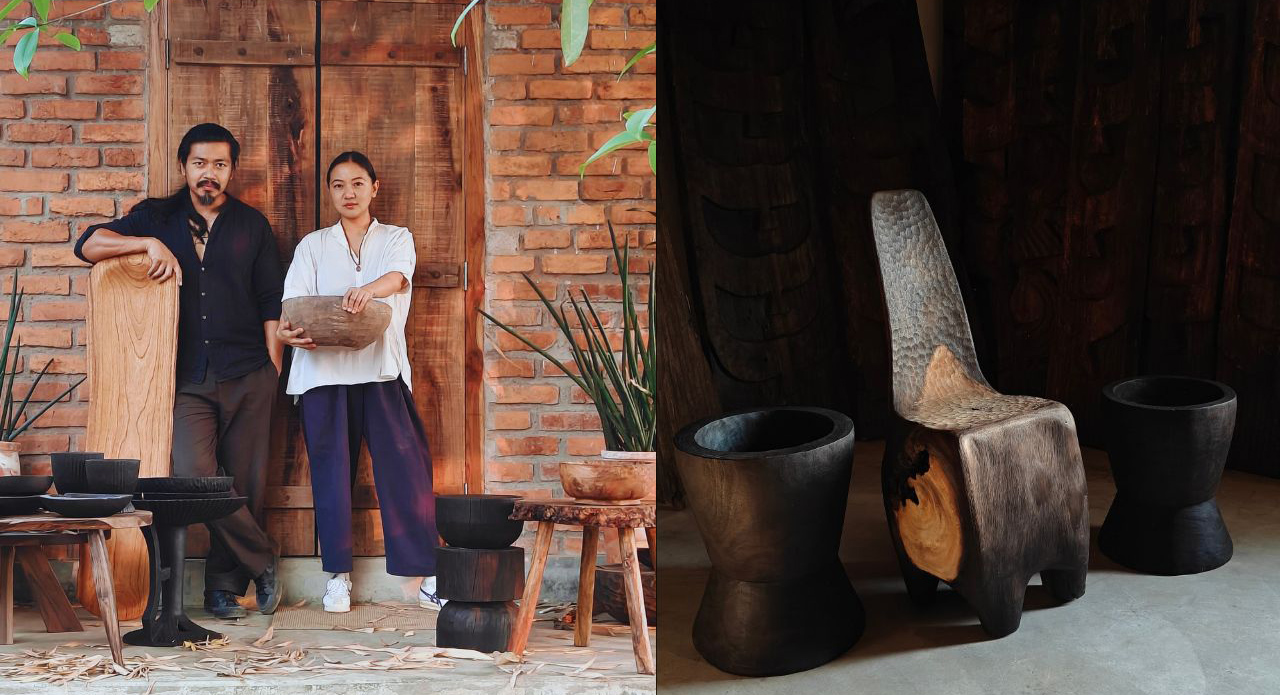“Our strength lies in the philosophy of ‘Democracy of Design’, says founder Raseel Gujral Ansal while talking about her new project Arzaani—a design store that offers a whimsical selection of curios, unique artefacts, and objects that are steeped in authenticity that resonate with her creative vision for the brand. Gujral firmly believes that luxury is not defined by price but by provenance, process, and purpose. According to her, “Arzaani is not merely a store; it is a curated narrative where every object tells a story. True to our ethos, Arzaani also houses a democratic curation of emerging and established Indian design brands—each selected for their integrity and narrative value,” explains Gujral-Ansal. Outlook Luxe caught up with the design maven as she spoke about her brand philosophy, inspiration, the evolving nature and perception of luxury in the Indian market, and the role of homegrown labels in championing this narrative. Excerpts:
Tell us about Arzaani—how did the concept come up and why did you decide to launch this?
Arzaani was born out of a desire to recalibrate the lens through which Indian design is perceived—shifting away from colonial clichés and mass-market kitsch toward a language of authentic, contemporary heritage. The idea took root during the past couple of years post-pandemic, as I reflected on the need for a platform that honours India’s artisanal wealth in a curated, design-forward manner. Set within the cultural context of Bikaner House, Arzaani is a retail atelier and concept space that brings together handcrafted homeware, decor, and objects rooted in legacy—yet interpreted for the modern aesthete.
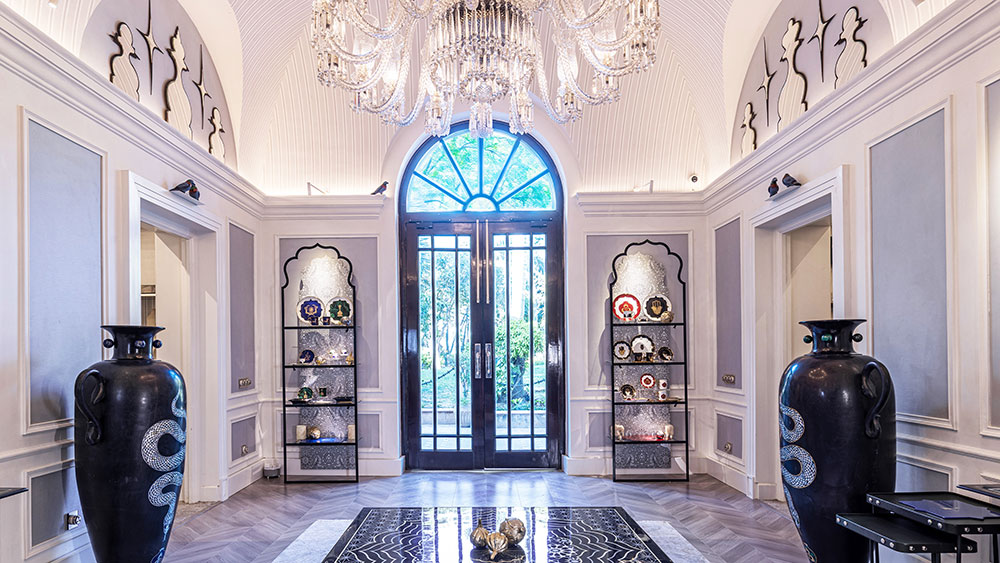
What is your inspiration for Arzaani?
The Silk Route, the scent of lime-washed havelis, forgotten bazaars, and the quiet heroism of Indian artisans—all form the undercurrent of Arzaani. But at its heart, the inspiration is deeply personal. My mother, Kiran Gujral—an aesthete in the truest sense—shaped my appreciation for beauty, handcraft, and detail. Arzaani is a tapestry of memory and geography; it is not about nostalgia but about intelligent revivalism.
What have been the biggest challenges in establishing Arzaani?
Navigating the delicate tension between artistry and commerce has been the greatest challenge. Creating a space that honours craft without commodifying it demands curatorial sensitivity, logistical persistence, and deep collaboration with artisans. Additionally, establishing a design-led retail destination within a heritage site like Bikaner House came with structural constraints—but also immense poetic potential.
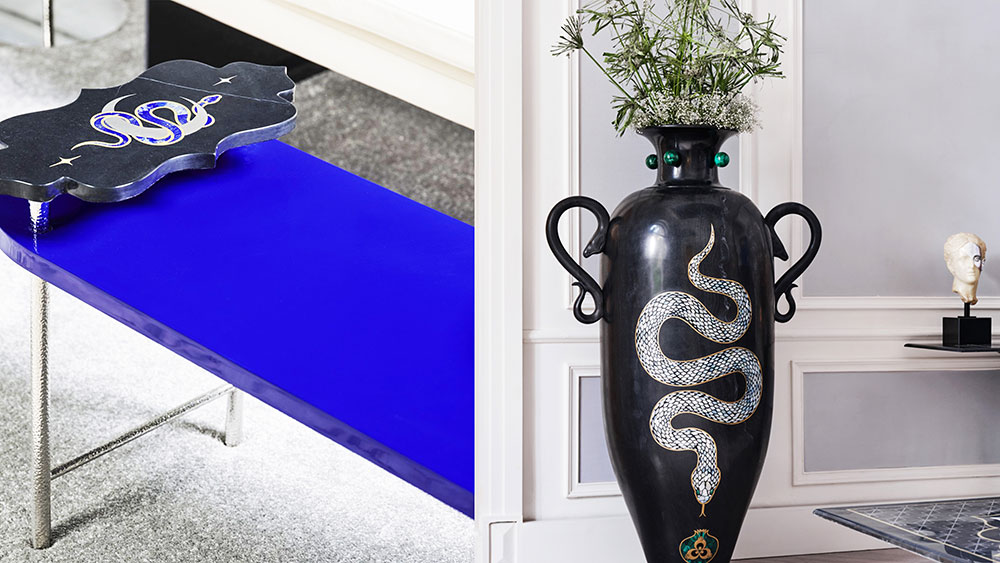
What are the brand’s key collections and why are they important?
Our signature collections include:
– Nazar – A talismanic series across furniture, textiles, and porcelain, inspired by protection symbols from across cultures.
– Inscape by Casa Pop – Collectible home accents featuring reimagined miniature art.
Each collection reinforces our guiding ethos: design as storytelling, rooted in memory, culture, and place.
What do you think are going to be the biggest decor/interior trends for 2025?
We foresee a shift toward emotive maximalism—interiors layered with storytelling, imperfection, and individuality. Think tactile surfaces, sculptural furniture, indigenous textiles, and objects with soul. The focus will be on slow, meaningful living—spaces that are not styled but lived in, not perfect but personal.
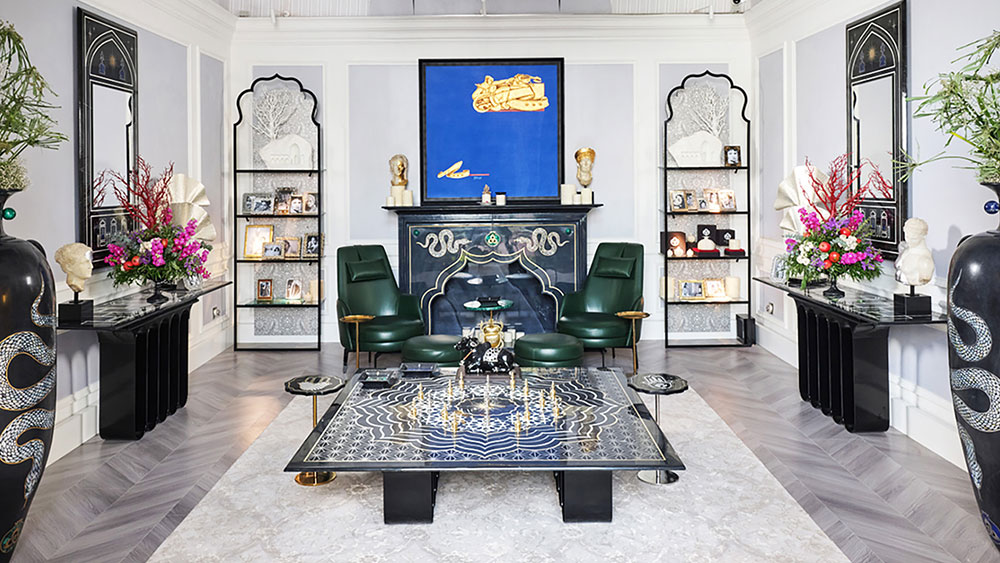
Do you think the concept of luxury has evolved in the last five years?
Absolutely. Luxury today is less about possession and more about experience. It’s increasingly driven by cultural intelligence, emotional engagement, and responsible consumption. There is a marked move away from cookie-cutter opulence towards the tactile, local, and soulful.
How do you think the consumer mindset has changed when it comes to spending on luxury?
Today’s consumers are seeking connection, not just transaction. They want to know the story behind the object—who made it, how, and why it matters. There’s a greater willingness to invest in fewer, more meaningful pieces. This shift—from display to discernment—is a positive and necessary evolution.
How do you think e-commerce has been a game changer when it comes to selling luxury goods online? Are people ready for it?
E-commerce has broadened access, but for luxury, it must go beyond the transactional. It’s about crafting a refined digital experience—from interface to storytelling to packaging. Indian consumers are ready, but brands must meet them with authenticity, tactility, and emotional resonance in the digital space.
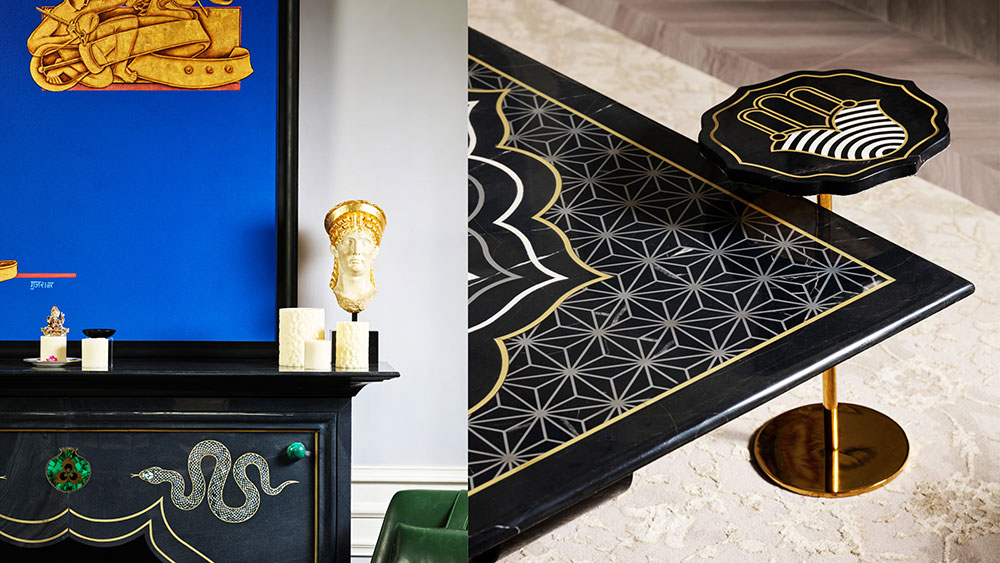
What is your business strategy for the next one year? Could you highlight any expansion plans?
Our focus this year is on deepening the Arzaani experience—through seasonal curations, cultural forums, and art-meets-craft installations at Bikaner House. We’re also expanding through bespoke collaborations with synergetic brands and building a flagship e-commerce platform. Conversations are underway for curated pop-ups in Mumbai and other culturally aligned locations, both within and beyond India.
ALSO READ: Bangalore Watch Company’s Peninsula Professional Collection Is An Ode To The Indian Subcontinent
How do you think India is shaping the luxury narrative? Do you think global brands are now looking at India as a strong market for leading this discourse?
India is no longer merely a market for luxury—it is fast becoming a source of luxury. Our material richness, artistic depth, and storytelling traditions are being recognised globally—not as decorative add-ons, but as authentic, intellectual contributions. Global brands are taking note. But perhaps more powerfully, Indian consumers themselves are embracing heritage with a new confidence. This is not just a shift—it’s a renaissance.
